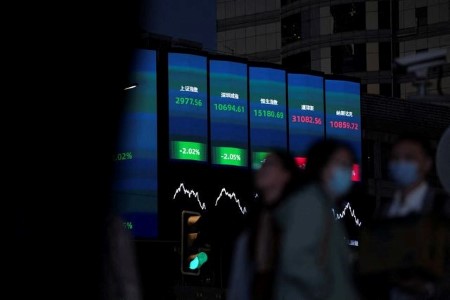




Policy Rate Updates: BSP outlook — cloudy with a chance of rate cut
 DOWNLOAD
DOWNLOAD

January Economic Update: Growth slows, prices rise
 DOWNLOAD
DOWNLOAD

Inflation Update: Up, up, and away?
 DOWNLOAD
DOWNLOAD


Emerging markets November foreign inflows most since June 2021 – IIF

Dec 8 (Reuters) – Foreigners dumped the most cash into emerging market portfolios in November than any month since June 2021 even as Chinese debt continues to see outflows, the Institute of International Finance (IIF) said on Thursday.
Overall, foreign investors added USD 37.4 billion to emerging market portfolios last month, with fixed income attracting USD 14.4 billion in the strongest monthly inflows so far this year.
Flows to Chinese equities also posted their largest monthly increase this year at USD 8.5 billion, but Chinese debt continued to see outflows that now total almost USD 77 billion in 2022.
“Non-resident investor flows to China have essentially ground to a halt, which is consistent with anecdotes we pick up from market participants who have become more attuned to geopolitical risk,” said IIF economist Jonathan Fortun in a report alongside the flows data.
China this week eased COVID-19 quarantine rules in a major policy adjustment which could reverse the flow of cash back into portfolios in the world’s second-largest economy.
Chinese stock indexes have had a rough year, and the low prices have enticed investors even before the new COVID rules. Shanghai stocks rose nearly 9% last month and are down 12% YTD while Hong Kong .HSI, down 17% so far in 2022, added 27% last month alone. The China MSCI index, priced in dollars, rose almost 30% in November.
The yuan CNY= gained 3% last month against the dollar but remains down near 9% this year, still on track for the largest yearly losses in almost three decades.
IIF regional data showed an inflow of USD 25.6 billion to Asia, while Latin America took in some USD 8.2 billion, the most since March, and emerging Europe another USD 3.2 billion. Africa and the Middle East took in USD 0.4 billion in the first positive reading since March.
(Reporting by Rodrigo Campos; Editing by Chizu Nomiyama)
This article originally appeared on reuters.com





 By Reuters
By Reuters